
J. Sayuri, Animal Brains Collection, Oakland, CA
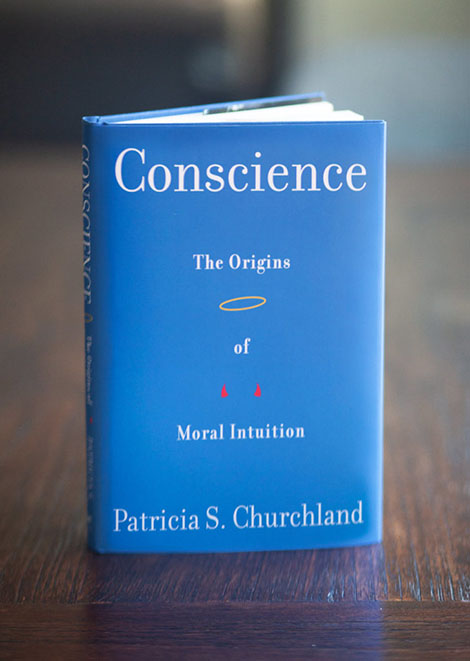
Conscience – The Origins of Moral Intuition
On first impulse, the word “conscience” seems easily defined as an innate knowledge of right and wrong. But if we think about the term more deeply, questions quickly arise. For instance, what one group defines as “right” is readily dismissed by another as “wrong.” Provocative, timely, and profound, Conscience is an upending examination of the roots behind our moral beliefs. With wisdom and unflinching scientific and philosophical insight, Patricia Churchland has written an eye-opening book that may seriously challenge everything we thought we knew about our best behavior.
Finalist, 2020 Pen/EO Wilson Literary Science Writing Award
Nicholas A. Christakis, Nature
“Conscience is illuminating, entertaining and wise.”
Read full review here.
Publishers Weekly
“In this fascinating work, Churchland…argues that human conscience is neurobiological in origin, rather than stemming, as contemporary philosophers commonly maintain, from universal moral laws. This intellectually rigorous yet highly readable work is well worth the time of anyone interested in why humans feel and think as they do.”
Kirkus Reviews
“To what extent is conscience shaped by the social world? What accounts for similarities of cooperation and sharing in human behavior? What accounts for psychopathology and for the disdain for honesty, kindness, and decency displayed by some celebrities and politicians? No discipline provides a complete answer to these formidable questions, but Churchland gleans insights from all…A thoughtful, accessible, and enlightening book.”
GoodReads
“In Conscience, Patricia S. Churchland explores how moral systems arise from our physical selves in combination with environmental demands. Conscience delves into scientific studies to deepen our understanding of whether people have a predisposition to embrace specific ethical stands. Churchland then turns to philosophy to explore why morality is central to all societies, how it is transmitted through the generations, and why different cultures live by different morals. Her unparalleled ability to join ideas rarely put into dialogue brings light to a subject that speaks to the meaning of being human.”
Undark
Interview: On Neuroscience and Morality: Five Questions for Patricia S. Churchland
Read full interview here.
Nous
Podcast: Patricia Churchland on How We Evolved a Conscience
Listen here.
Brain Science
Podcast: Philosopher Patricia Churchland Talks About Conscience, with Ginger Campbell, MD
Listen here.
Vox
Article: How Your Brain Invents Morality
Read here.
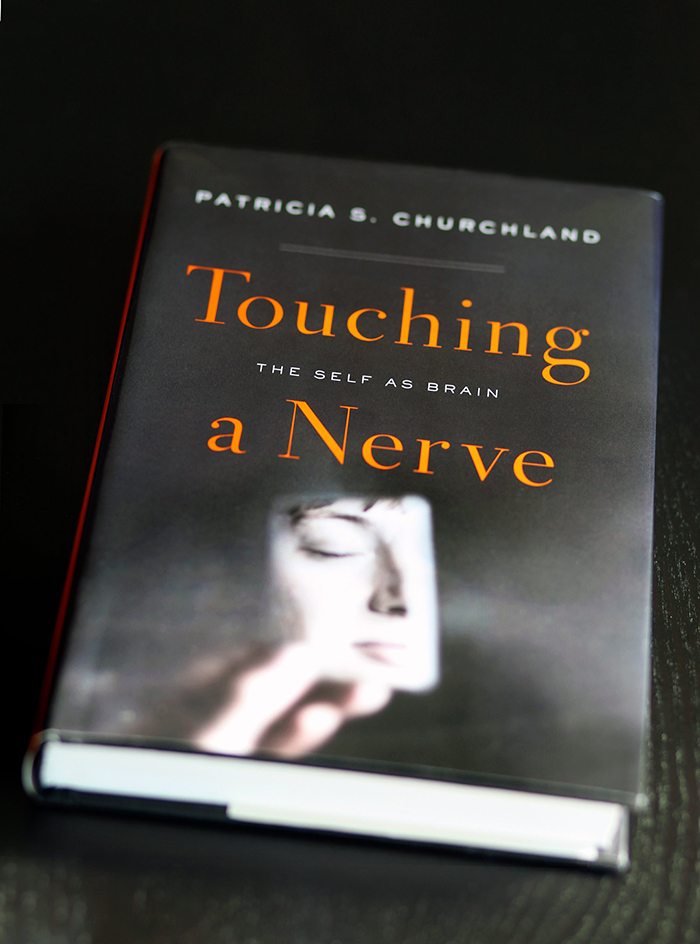
Touching a Nerve – The Self as Brain
What happens when we accept that everything we feel and think stems not from an immaterial spirit but from electrical and chemical activity in our brains? In this thought provoking narrative—Patricia Churchland lucidly explains the latest brain science and explores its ethical and philosophical implications for our understanding of identity, consciousness, memory, and free will.
Abigail Zuger, New York Times
“It is hard to conceive of a better guide to this difficult terrain than the MacArthur award winning Ms. Churchland… [She] writes with surpassing clarity, elegance, humor and modesty.”
David Livingstone Smith, author of Less than Human: Why We Demean, Enslave and Exterminate Others
“A spellbinding journey into the workings of the human brain and the relevance of neuroscience to our daily lives. It will interest anyone who thinks that good philosophy needs be grounded in good science or who is simply curious about how understanding the brain can help us make sense of the human condition. A terrific read!”
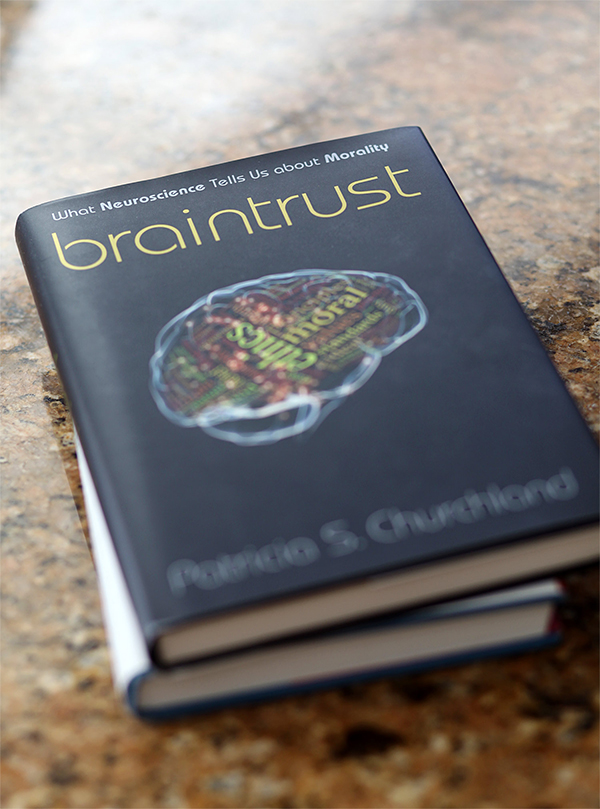
Braintrust – What Neuroscience Tells Us About Morality
What is morality? Where does it come from? And why do most of us heed its call most of the time? In Braintrust, Patricia Churchland argues that morality originates in the biology of the brain. She describes the “neurobiological platform of bonding” that, modified by evolutionary pressures and cultural values, has led to human styles of moral behavior. The result is a provocative genealogy of morals that asks us to reevaluate the priority given to religion, absolute rules, and pure reason in accounting for the basis of morality. A major new account of what really makes us moral, Braintrust challenges us to reconsider the origins of some of our most cherished values.
2012 Outstanding Academic Title – Association of American Publishers Choice
Winner, 2011 Prose Award for Excellence in Biology and Life Sciences
Antonio Damasio, author of Descartes’s Error
“Few areas of science are as relevant for the future of humanity as the science of morality, and few scholars are as prepared to comment on its current status as Patricia Churchland. Braintrust is vintage Churchland, only better.”
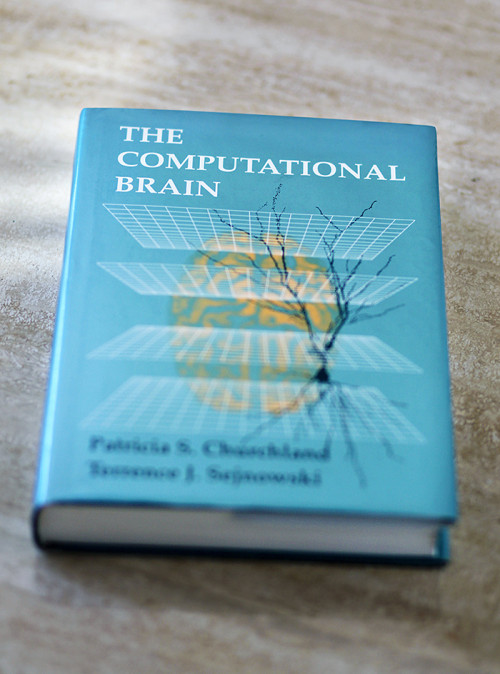
The Computational Brain
The Computational Brain is the first unified and broadly accessible book to bring together computational concepts and behavioral data within a neurobiological framework. Churchland and Sejnowski address the foundational ideas of the emerging field of computational neuroscience, examine a diverse range of neural network models, and consider future directions of the field.
J.P. Changeux, Institut Pasteur
“There is no equivalent to The Computational Brain—a unique synthesis of the fast expanding field of neural modeling. A rewarding experience to read.”
Michael A. Arbib
“The book falls somewhere between a trade book and a textbook, with a style well suited for the Scientific American reader, as well as the active scientist, who may know something of either computer science or neuroscience but welcomes a crisp narrative that includes the necessary background from each discipline.”
Read full review here.
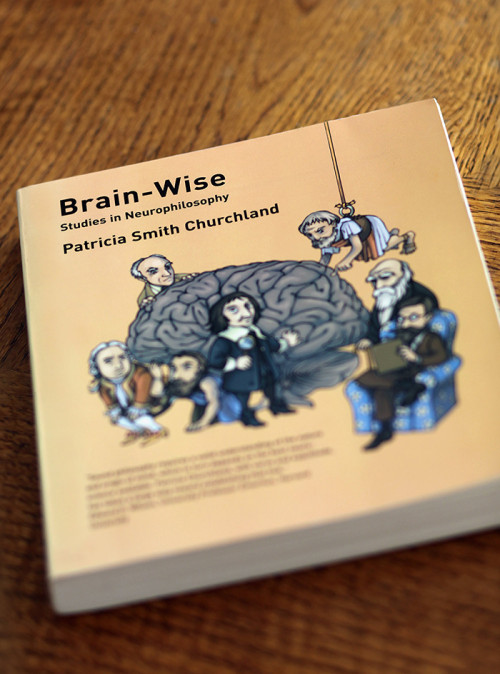
Brain Wise
In a clear, conversational manner, this book examines old questions about the nature of the mind within the new framework of the brain sciences. Drawing on results from research at the neuronal, neurochemical, system, and wholebrain levels, the book gives an up-to-date perspective on the state of neurophilosophy—what we know, what we do not know, and where things may go from here.
Owen Flanagan, James B. Duke Professor of Philosophy, Duke University
“A brilliant tour of what neuroscience teaches about perennial philosophical problems of self, knowledge, identity, and the nature of things. It’s also a thrilling primer on how philosophy itself will change as it takes knowledge of brain science to heart. A wonderful treat for the novice and the expert!”
Edward O. Wilson, University Professor Emeritus, Harvard University
“Sound philosophy requires a solid understanding of the nature and origin of mind, which in turn depends on the best neuroscience available. Patricia Churchland, with verve and exactitude, has taken a large step toward establishing that link.”
Maggie McDonald, New Scientist
“It is both lucid and profound, cutting through issues where others only obfuscate. The one to read.”
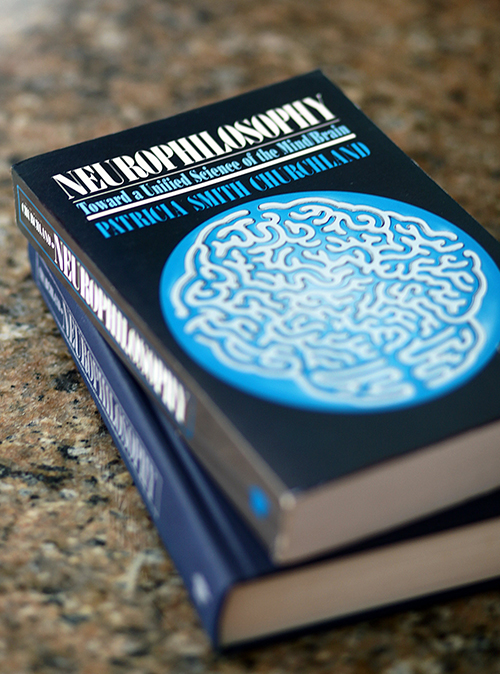
Neurophilosophy
Neurophilosophy is a rich interdisciplinary study of the prospects for a unified cognitive neurobiology. Contemporary research in the empirical neurosciences, and recent research in the philosophy of mind and the philosophy of science, are used to illuminate fundamental questions concerning the relation between abstract cognitive theory and substantive neuroscience.